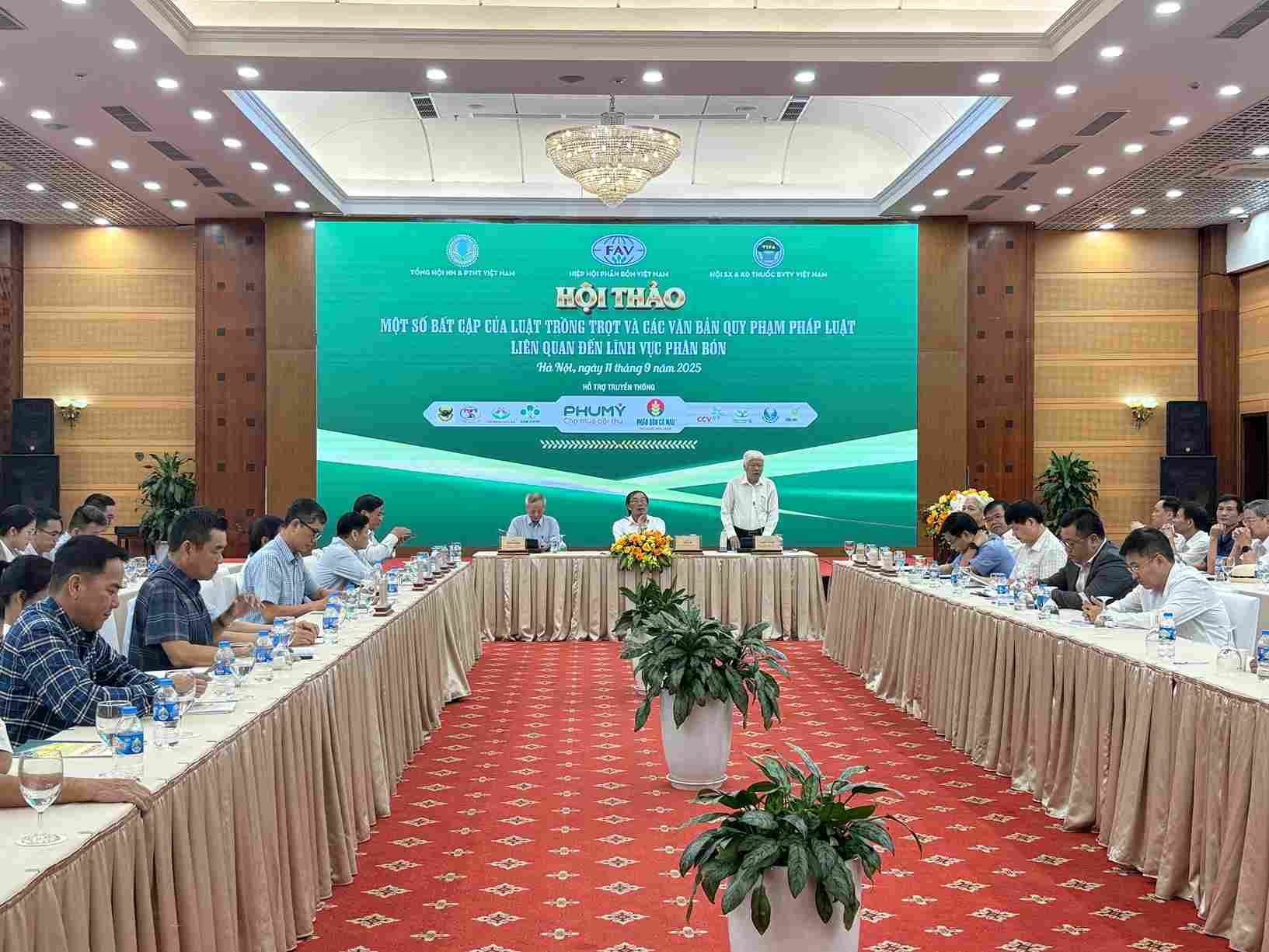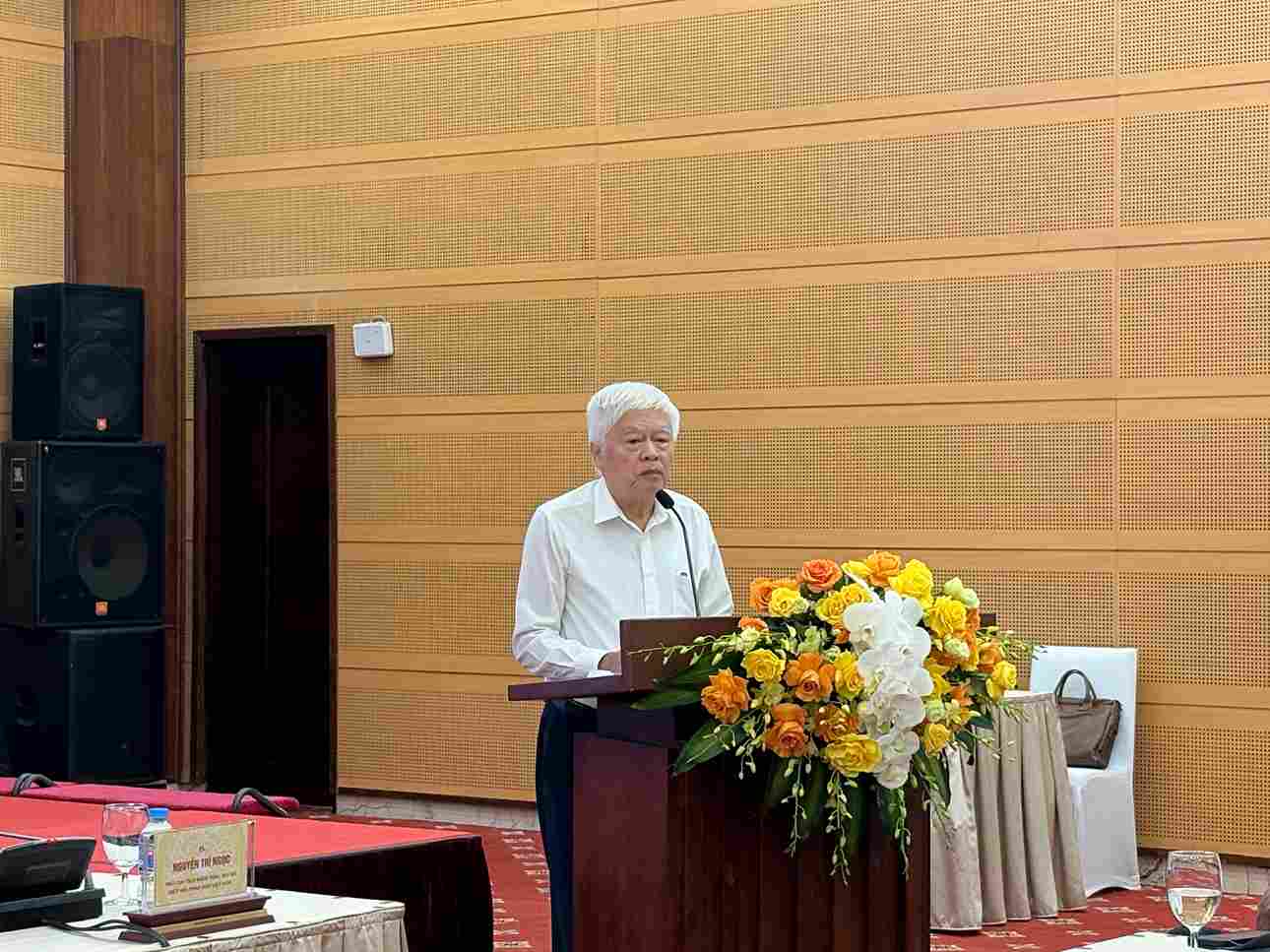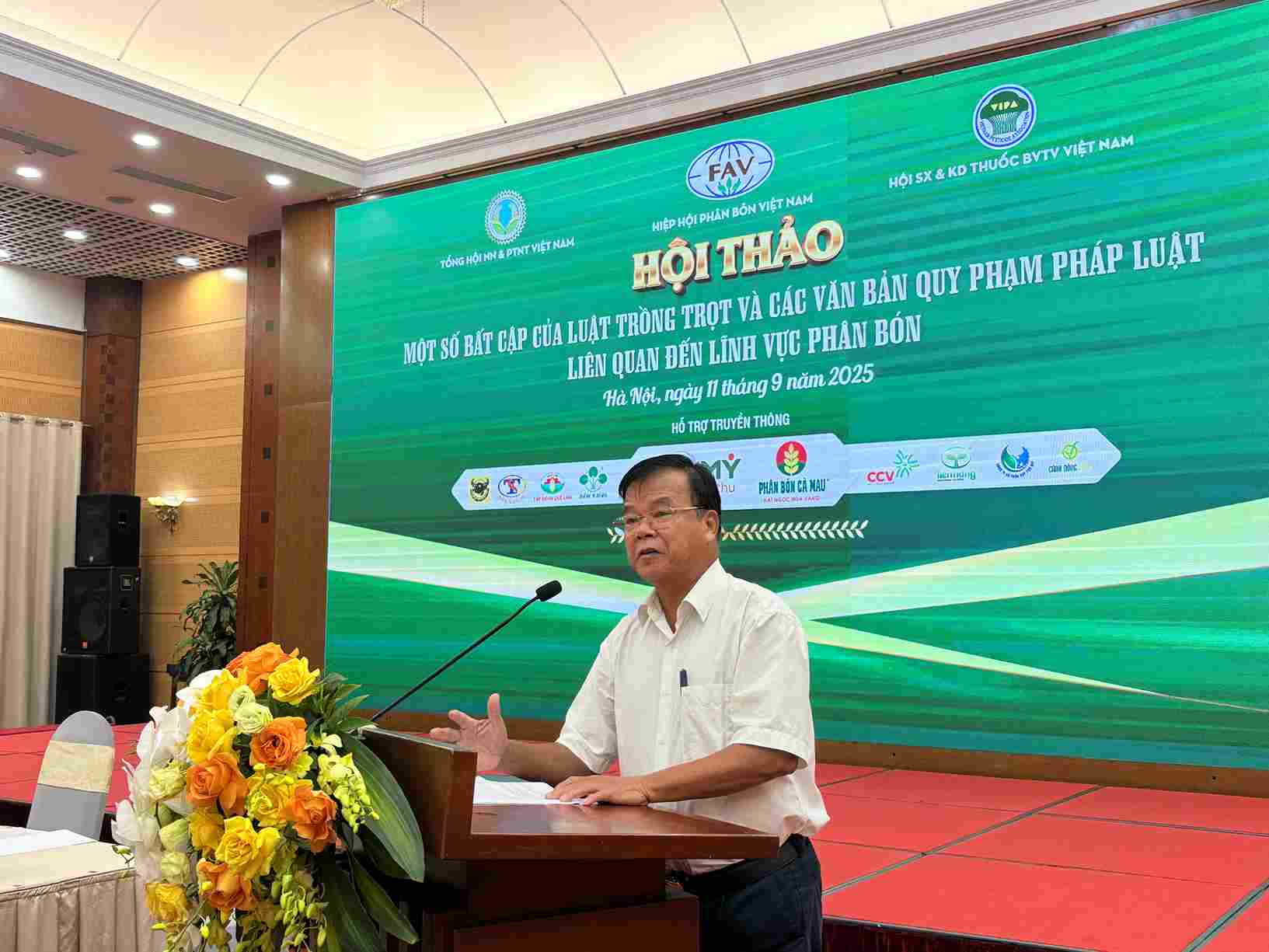The law creates a framework but is not yet effective enough
On September 11, in Hanoi, the Vietnam Fertilizer Association chaired a workshop on "Some shortcomings of the Crop Law and legal documents related to the fertilizer sector", attracting many experts in the field to pay attention.

Speaking at the opening of the workshop, Mr. Nguyen Tri Ngoc - Vice President and General Secretary of the Vietnam Fertilizer Association - affirmed that the Law on Crops passed by the National Assembly in 2018 and effective from January 1, 2020 has created an important legal corridor for production, business and management activities in the field of cultivation, promoting positive effects, contributing to promoting agricultural development, especially in the field of fertilizers.
However, practice also shows that there are many limitations and shortcomings that need to be studied, amended and supplemented to better suit new development requirements and international integration trends.
At the workshop, Mr. Nguyen Tri Ngoc frankly pointed out the remaining problems. Notably, the situation of fake and poor quality fertilizers is still widespread and the procedures for recognizing circulating fertilizers, testing, and certifying conformance are both prolonged and cause unnecessary costs.

"The provisions in the Law on Crop Production are not enough to deter, in general, controlling these products on the market is not possible, in the end, farmers will suffer the consequences" - Mr. Ngoc emphasized,
The law on many hotels causes difficulties for businesses
Many business representatives also spoke up to say that current procedures and regulations are creating more burdens instead of supporting the development of fertilizer production and business activities.
Mr. Hoang Van Viec - Former General Director of Van Dien Melted Lawn Fertilizer Joint Stock Company - raised many questions about the necessity and effectiveness of fertilizer testing, saying that this procedure is expensive but does not accurately reflect actual production conditions, while the product life cycle is getting shorter.
The representative of this enterprise also pointed out the current situation of many products, although recognized as standard, not meeting quality when inspected, while this procedure increases production costs, putting the final burden on farmers.
According to Mr. Vi, some concepts in the law are not specific and can easily cause confusion, such as the "competition" between fertilizers and soil improvers. He recommended separating the concepts and clearly defining nutritional standards and harmful factors in fertilizers. In addition, it is advisable to shift the focus from pre-inspection to post-inspection to improve management efficiency.

Sharing the same view, Dr. Truong Hop Tac - former Head of the Fertilizer Department (Department of Crop Production and Plant Protection) - recommended that the Ministry of Agriculture and Environment should soon abolish the procedures for recognizing circulating fertilizers, testing, and certifying compliance, and at the same time supplement regulations prohibiting the use of colorants and developing a fertilizer development project for the next stages.
The opinions at the workshop agreed that creating a transparent business environment and reducing costs for businesses and farmers, needing to promptly review and amend inadequate regulations in the Law on Crop Production, National Technical Regulations and related decrees is an urgent requirement.








